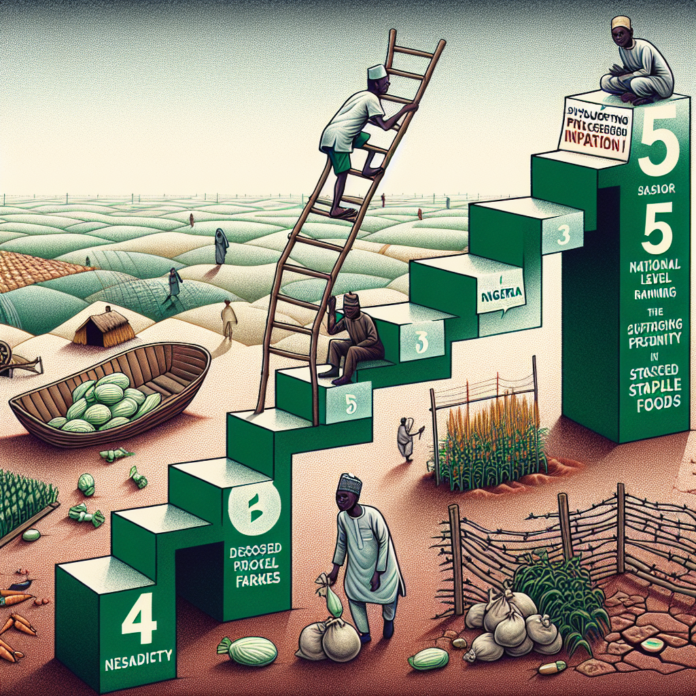Nigeria Faces Fifth Highest Global Food Inflation Amidst Insecurity and Climate Change
Nigeria Faces Severe Food Inflation Crisis, Ranking Fifth Globally
Insecurity and Climate Change Compound the Problem
Nigeria is currently grappling with a significant food inflation crisis, placing it as the fifth highest globally in terms of food price increases. This alarming situation is fueled by a combination of factors, with insecurity and climate change playing pivotal roles in exacerbating the crisis.
The impact of climate change has been particularly severe on Nigeria’s agricultural sector. Unpredictable weather patterns, including prolonged droughts and intense flooding, have disrupted farming activities, reducing crop yields and affecting food supply chains. These environmental changes challenge farmers’ ability to plan and produce consistent agricultural outputs.
Insecurity in various regions of the country further compounds the problem. Conflicts, particularly in the Northern parts, have displaced communities and disrupted farming activities. The presence of armed groups and banditry has made it increasingly difficult for farmers to access their lands safely, leading to reduced agricultural productivity.
The combination of these factors has led to a sharp rise in food prices, placing an additional financial burden on households already struggling with economic challenges. As a result, many Nigerians face difficulties in accessing sufficient and nutritious food, exacerbating issues of food security and malnutrition.
The Nigerian government and stakeholders are under pressure to address these challenges through policies aimed at improving agricultural resilience, enhancing security measures, and promoting sustainable farming practices. International organizations and local agencies are also called to support efforts in mitigating the effects of climate change and insecurity on agriculture.
Addressing these interconnected issues is crucial for stabilizing food prices and ensuring that Nigerians have access to affordable, nutritious food. As the country navigates these complex challenges, collaborative efforts between the government, private sector, and international partners will be essential in creating a sustainable solution to the food inflation crisis.


